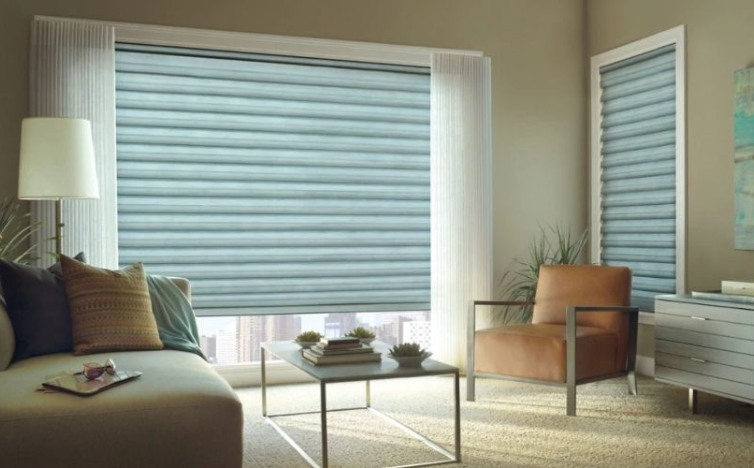When it comes to creating a peaceful and quiet environment at home, reducing noise is a top priority. Whether you live in a bustling city or near a busy street, unwanted noise can be a significant disturbance. Two popular window treatments— soundproof curtains vs blinds—are often considered for their noise-reducing capabilities. But which one is more effective? In this article, we’ll explore the noise-reducing properties of curtains and blinds to help you make an informed decision.
How Curtains Reduce Noise
Curtains, especially those made from heavy, dense fabrics like velvet or blackout materials, are excellent at absorbing sound. The thickness and weight of the fabric help to dampen noise by preventing sound waves from passing through. Additionally, curtains that extend beyond the window frame and reach the floor can further block noise by sealing gaps where sound might enter.
For optimal noise reduction, consider using double-layered curtains or adding a soundproofing liner. These enhancements can significantly improve the sound-absorbing qualities of your curtains, making them a strong contender for noise reduction.
How Blinds Reduce Noise
Blinds, on the other hand, are generally less effective at reducing noise compared to curtains. While they can provide some level of sound dampening, their thin and rigid materials (such as wood, aluminum, or vinyl) are not as effective at absorbing sound waves. However, cellular or honeycomb blinds, which have a unique layered design, can offer slightly better noise reduction by trapping air and creating a barrier against sound.

That said, blinds are more effective at blocking light and providing privacy than they are at reducing noise. If noise reduction is your primary goal, blinds may not be the best choice unless paired with other soundproofing measures.
Soundproof Curtains vs Blinds: Which is Better for Noise Reduction?
When comparing curtains and blinds, curtains are the clear winner for noise reduction. Their thick, soft fabrics are naturally better at absorbing sound, while blinds, with their hard surfaces, tend to reflect sound rather than block it. However, the effectiveness of curtains can vary depending on the material, thickness, and installation. For the best results, choose heavy, floor-length curtains with soundproofing liners.
Blinds, while not as effective, can still contribute to noise reduction when used in combination with curtains or other soundproofing solutions. For example, layering blinds with curtains can create an additional barrier against noise.
Factors to Consider When Choosing Between Curtains and Blinds
- Material: Heavy fabrics like velvet or blackout materials are best for noise reduction in curtains. For blinds, cellular designs offer better sound dampening.
- Thickness: Thicker curtains provide better noise absorption, while thin blinds are less effective.
- Installation: Proper installation, including covering the entire window and sealing gaps, is crucial for maximizing noise reduction.
- Aesthetic Preferences: Consider the look and feel of your space. Curtains offer a softer, more luxurious appearance, while blinds provide a sleek, modern look.
Call us: Contact DeSound Soundproofing Expert in Dubai For Soundproofing: +971 56 231 4204
Conclusion
If reducing noise is your primary goal, curtains are the better choice over blinds. Their thick, dense fabrics are highly effective at absorbing sound, creating a quieter and more peaceful environment. However, blinds can still play a role in noise reduction, especially when paired with curtains or other soundproofing solutions. Ultimately, the best option depends on your specific needs, preferences, and the level of noise reduction you require.

